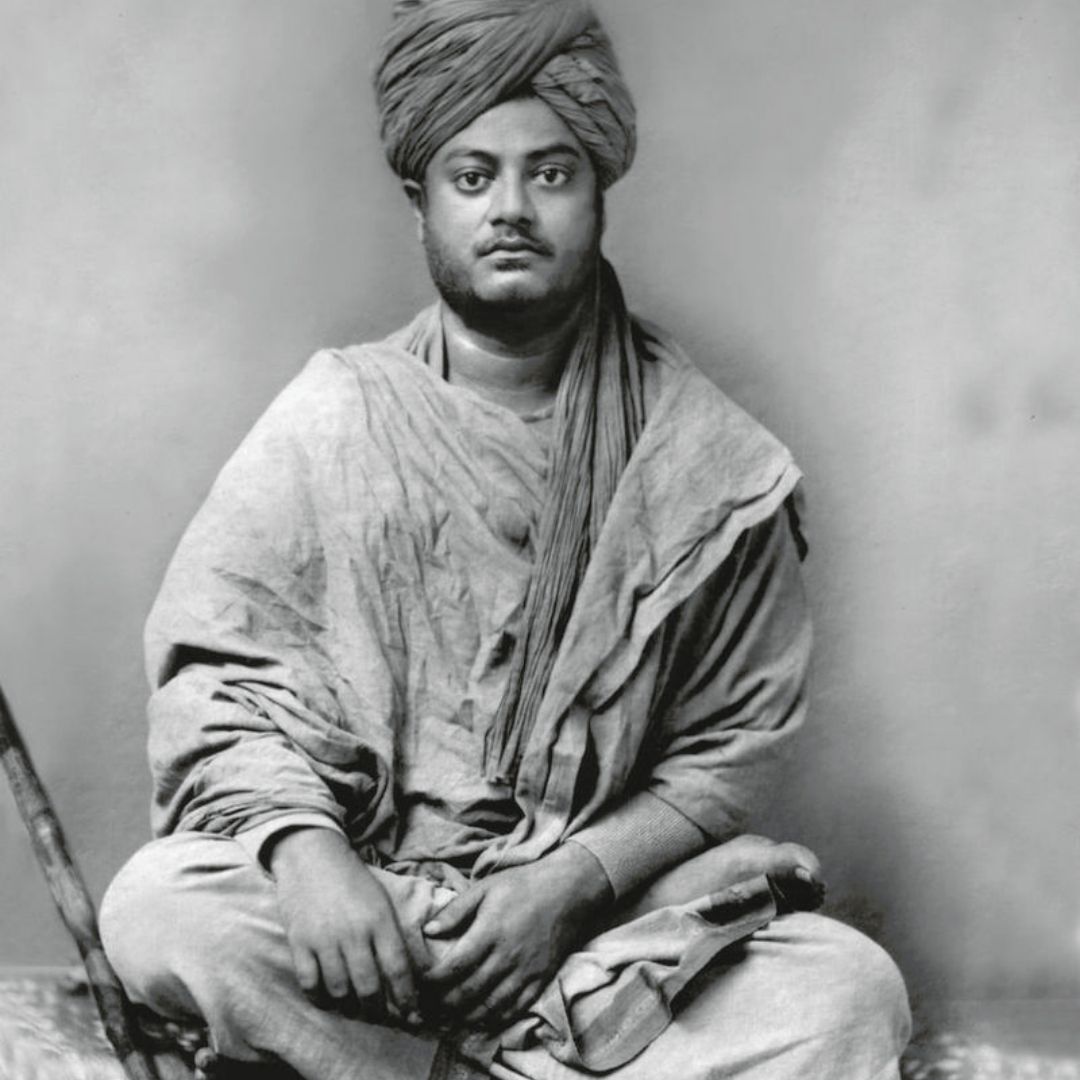
Image Credits: Wikipedia
Remembering Swami Vivekananda, Man Known For His Prodigious Memory And Speed Reading
India, 12 Jan 2022 11:15 AM GMT
Editor : Shiva Chaudhary |
A post-graduate in Journalism and Mass Communication with relevant skills, specialising in content editing & writing. I believe in the precise dissemination of information based on facts to the public.
Creatives : Tashafi Nazir
For most people, journalism sounds hectic and chaotic. For her, it's a passion she has been chasing for years. With an extensive media background, Tashafi believes in putting efforts on presenting a simple incident in the most interesting way.
Swami Vivekananda, born on January 12, 1863, is regarded as an inspiration to the humankind, greatest source of achievement and pride. Besides being pure in his thoughts and action, Swami Vivekananda is known for his eidetic memory and his ability at speed reading.
National Youth Day, also known as Yuva Diwas, is celebrated every year in India on January 12 to mark the birth anniversary of the country's great thinker and philosopher Swami Vivekananda. Born in 1863, Vivekananda is regarded as an inspiration to the humankind, greatest source of achievement and pride. Being one of the young generation monks, he spread the words of humanity and brotherhood among all people and called for global integrity through spiritual upliftment.
Every year, the theme of National Youth Day is decided by the Government of India according to recent and relevant situations in the country. For 2022, the chosen theme is, "It's all in the mind, significant teaching of Swami Vivekananda.
Besides being pure in his thoughts and action, Swami Vivekananda is known for his eidetic memory and his ability at speed reading. He could memorise a book just by going through it for a single time. Some accounts have called Vivekananda a 'shrutidhara' (a person with a prodigious memory).
Man With A Vision
According to a research paper, 'Vivekananda and the art of memory', in 'Reminiscences of Swami Vivekananda,' his friend Haripada Mitra relates the following story, "One day, Swamiji was reading a book reclining in his bed. I was in another room. Suddenly, he laughed so hard that I thought there must be some reason, and so I went to his door to find that nothing had happened. He continued to read as I stood there for some fifteen minutes; still, he did not notice me. His mind was all concentrated on the book. Later on, he saw me and asked me to step in. When he heard that I had been standing there for a quite long time, he said, "Whatever one has to do, one must apply whole attention and energy for the time being."
Akhandananda, a brother disciple, went to bring books from the local library in Meerut for Vivekananda. Accordingly, Akhandananda got one volume each day, and the Swami would finish a volume in a single day and return it the next day. The librarian argued with Akhandananda that Vivekananda had indeed returned the books without reading them and remarked that he was only showing off. Hearing this, Swami himself went to the librarian and said, "Sir, I have mastered all these volumes; if you have any doubts, you may ask me about them." The librarian then examined the monk and became fully convinced by doing so. Later, Akhandananda asked Swami how he could do it, to which he replied, "I never read a book word by word. I read sentence by sentence, sometimes paragraph by paragraph, in kaleidoscopic form."
Vivekananda's prodigious memory was demonstrated from his youth. He would finish a big book in just one night in college, keeping awake by drinking strong tea or coffee. Shortly before he passed away, he fell sick. During his recovery, he had begun reading the newly published edition of the Encylopedia Brittanica.
His disciple, Saratchandra Chakravarty, seeing these twenty-five large volumes one day, remarked, "It is hard to master the contents of so many volumes in one life." He did not know at the time that Vivekananda had already completed ten volumes and was reading the eleventh. "What do you mean?" Swami said. "Ask me whatever you like from these ten volumes, and I can tell you all about it." Out of curiosity, the disciple brought down the volumes and started asking him questions on abstruse topics. Not only did Swami answer these questions, displaying a vast amount of even technical knowledge, but in many instances, he quoted the exact language of the books. The disciple was spellbound at the extraordinary grasp and memory of his guru and exclaimed, "This is beyond the power of man." Vivekananda then told him that there was nothing miraculous about it. "If one observed the strictest two 'Brahmacharya', one could retain and repeat exactly what one had heard or read but once, even if years ago."
Another encounter of a similar nature happened with the German scholar, Professor Paul Deussen. When Vivekananda was looking into a book of poetry, the Professor, wanting to draw him into a conversation, spoke to him but received no response. Swami continued to turn the pages. Later on, when he came to know about it, he apologised and explained to the Professor that he had been so absorbed in reading that he heard nothing. His mind was always focussed as a steady laser beam on the matter at hand. Deussen was initially sceptical but was later astounded when the Swami recited whatever he had been reading.
Vivekananda believed that every person's mind becomes concentrated at times. "We all concentrate upon those things we love, and we love those things upon which we concentrate our minds," he said.
Also Read: As Light As Air! Telangana Weaver Makes Saree That Fits In Matchbox
 All section
All section














